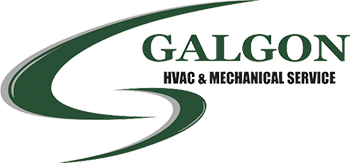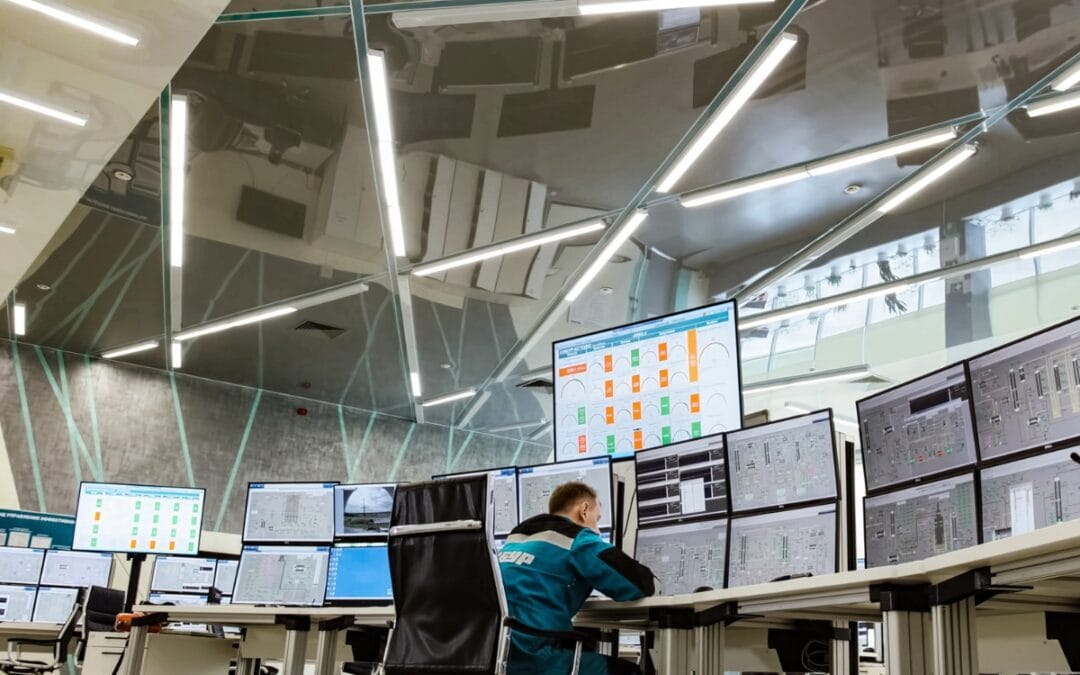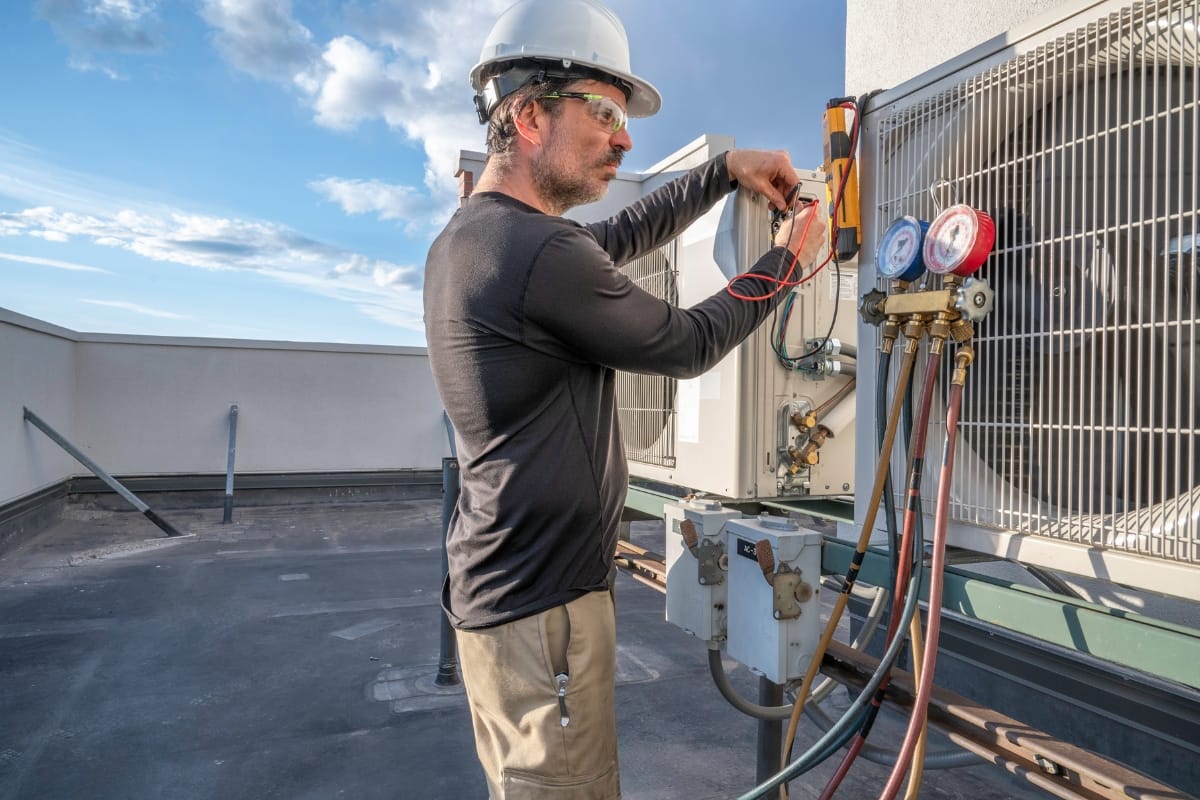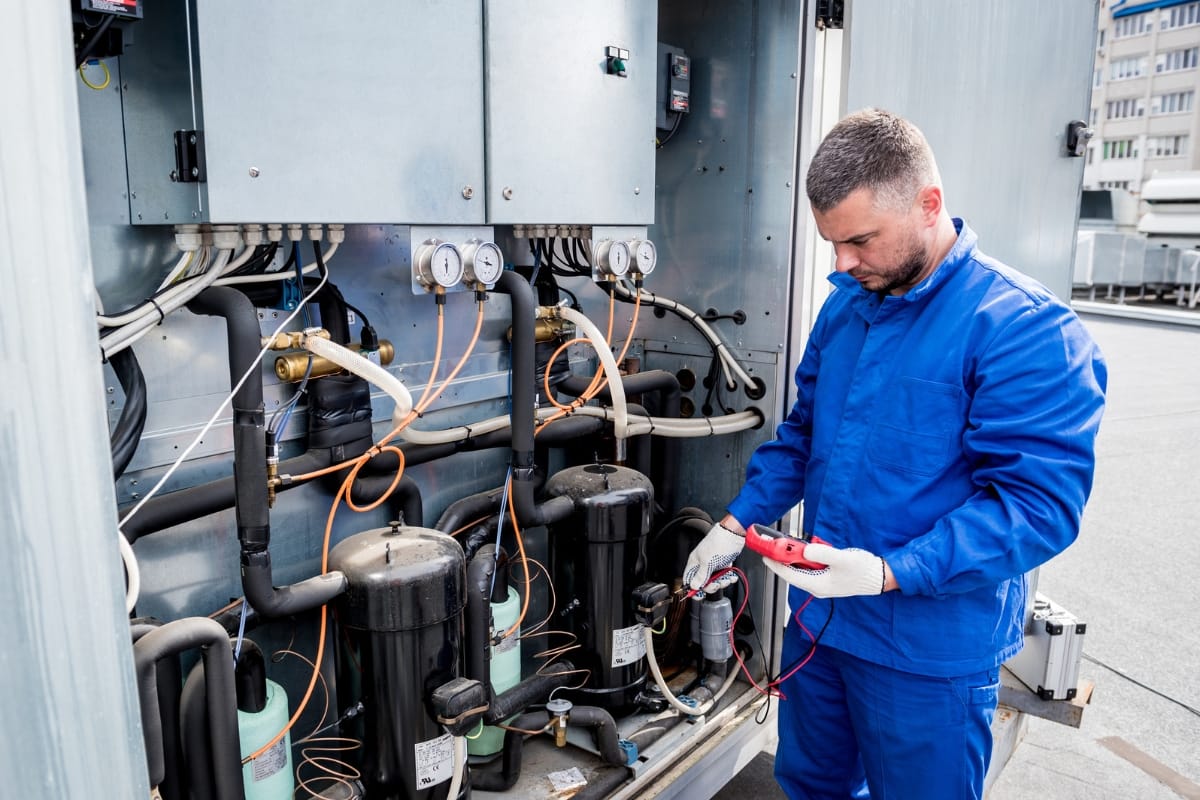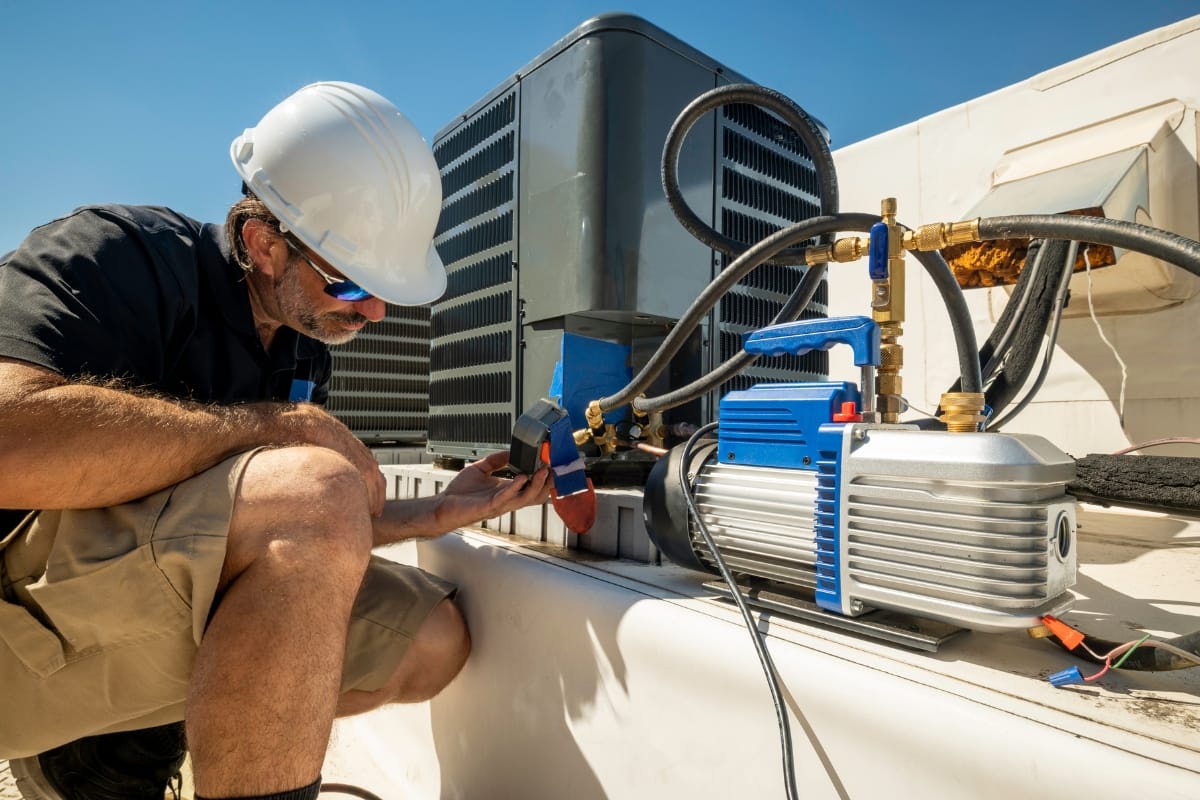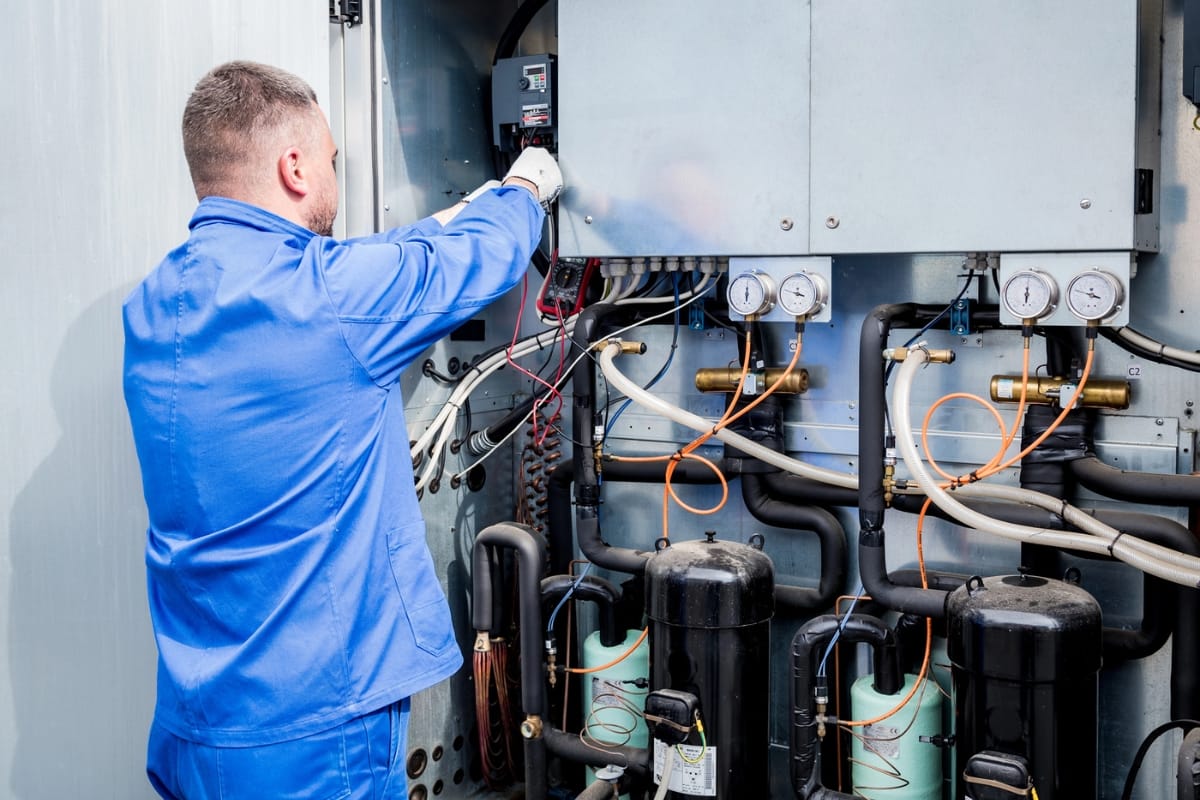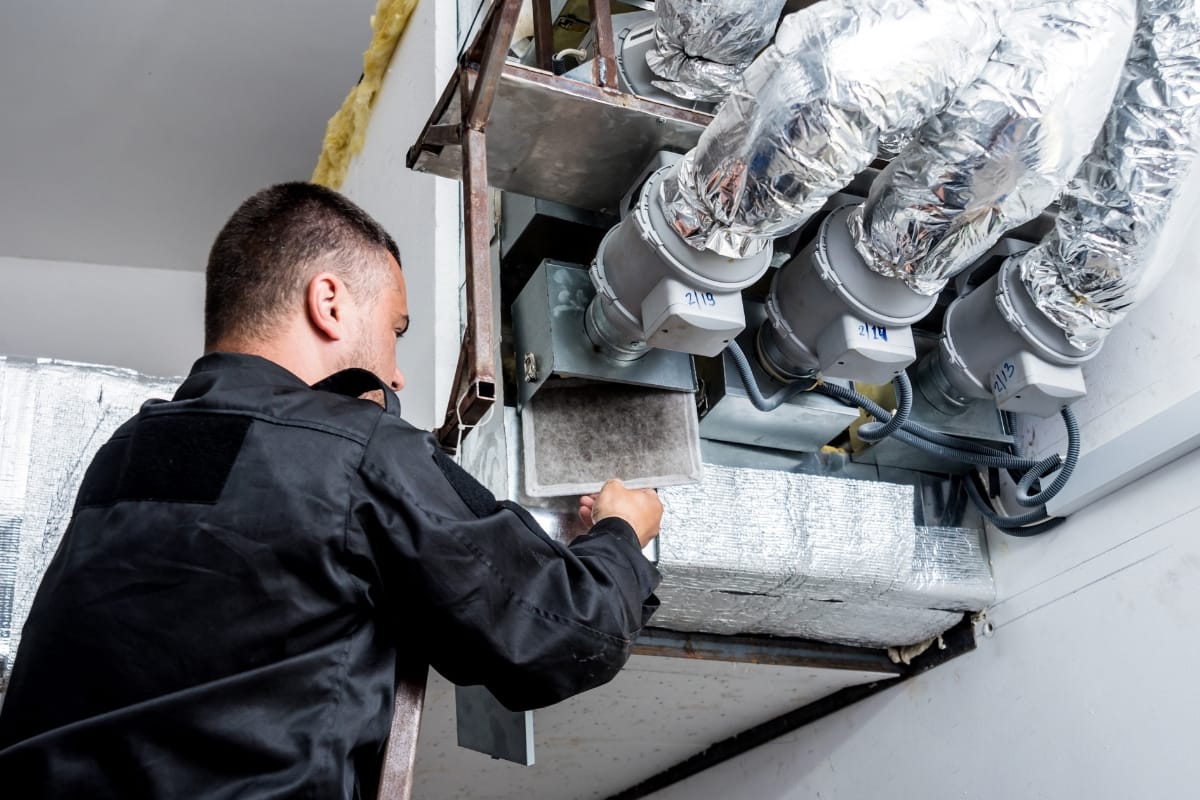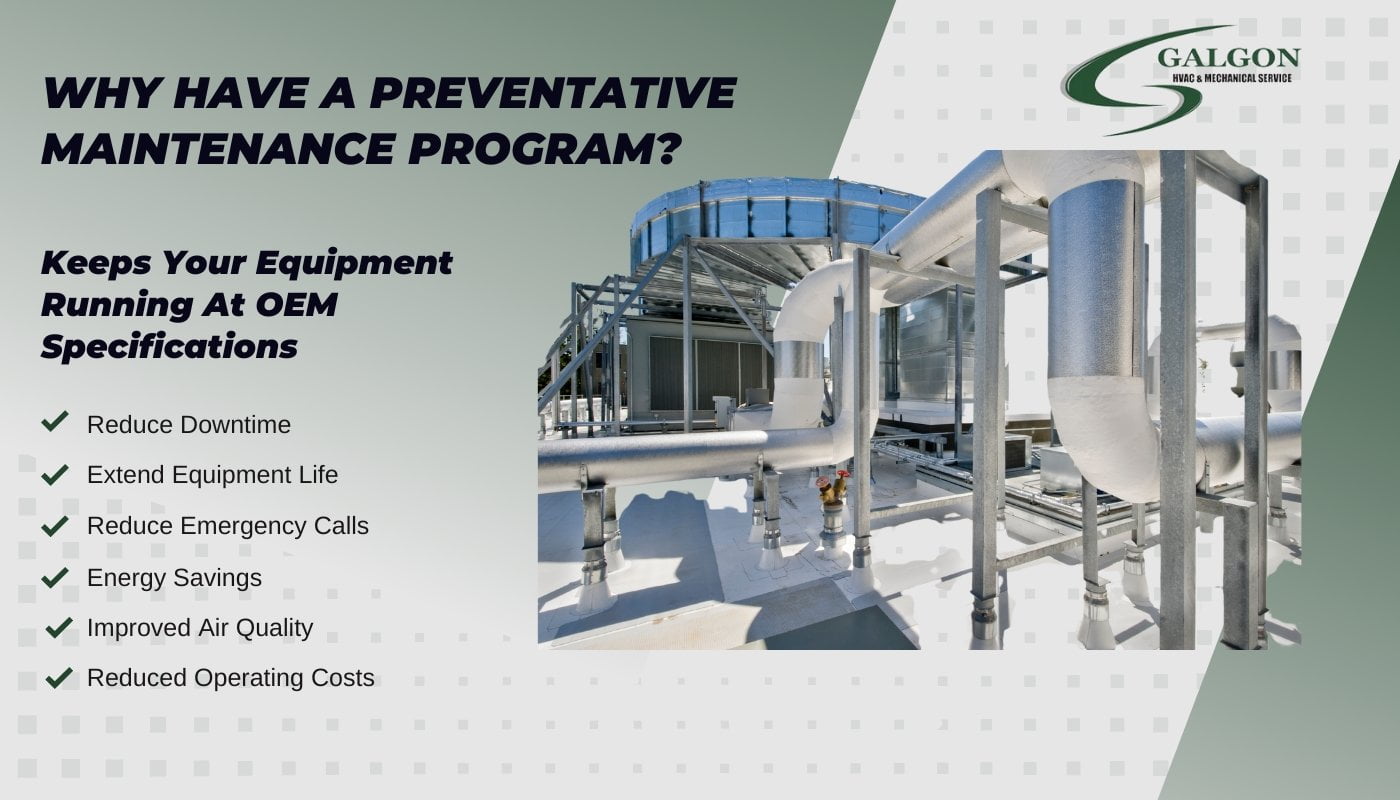Smart HVAC solutions are transforming the way businesses manage their indoor environments, offering a perfect blend of comfort, efficiency, and advanced technology.
By integrating intelligent systems that monitor and adjust temperature, air quality, and energy usage in real-time, companies can create a more comfortable workspace while reducing operational costs and minimizing environmental impact.
Here, we’ll explore how modern HVAC systems are revolutionizing business environments, improving efficiency and enhancing comfort.
Revolutionize Your Workspace with Smart HVAC Solutions
Enhanced Comfort through Automated Temperature Control
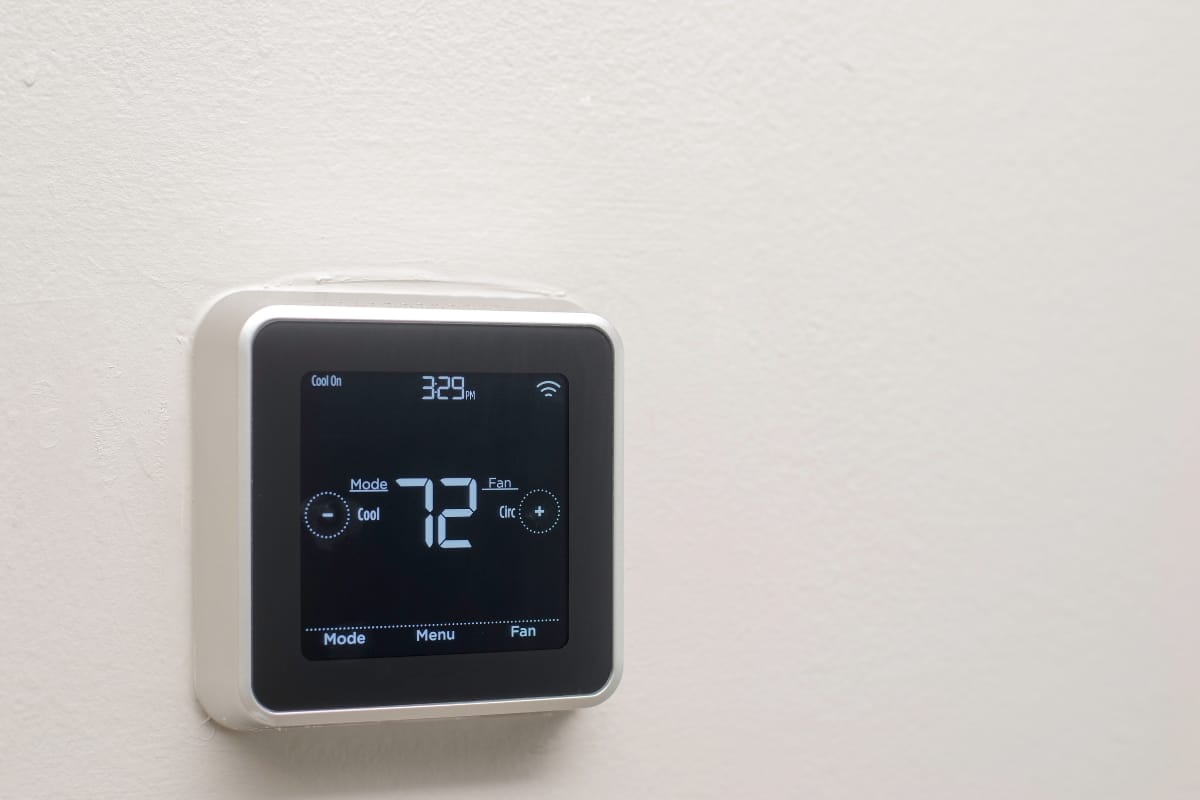
One of the standout benefits of smart HVAC solutions is their ability to provide seamless, automated temperature control, significantly enhancing comfort levels.
Traditional systems often require manual adjustments, leading to periods of discomfort as the space slowly adjusts to the desired temperature. Smart HVAC technology eliminates these inconveniences by creating a self-regulating environment that ensures consistent comfort throughout the day.
These advanced systems are equipped with HVAC smart thermostats and sensors that track various parameters, such as room occupancy, outdoor weather conditions, and even daily temperature patterns.
By using this smart HVAC communicating technology and data, the system can preemptively adjust the indoor climate, ensuring a comfortable atmosphere without the need for human intervention. This means that businesses can maintain ideal conditions across different areas of the building, regardless of changes in usage or external weather.
Additionally, the ability to personalize temperature settings enhances both employee productivity and customer satisfaction. For instance, in an office setting, different zones can be adjusted to meet the preferences of individuals or departments.
This level of customization, paired with the system’s ability to learn and adapt over time, makes smart HVAC solutions a game-changer for creating consistently comfortable environments. This ultimately leads to higher workplace morale, better energy efficiency, and an improved overall experience for all occupants.
Energy Efficiency: Optimizing HVAC Systems for Cost Savings

In addition to enhancing comfort, smart HVAC solutions are designed with energy efficiency in mind, a crucial factor for businesses aiming to reduce overhead costs.
Traditional HVAC systems typically operate on pre-set schedules, running at full capacity even when spaces are unoccupied. This leads to unnecessary energy consumption and inflated utility bills. Moreover, manual adjustments often result in over- or under-heating or cooling, further impacting energy usage.
Smart HVAC systems, however, bring a more dynamic and intelligent approach to energy management. These systems leverage real-time data on occupancy, weather conditions, and even time of day to make precise adjustments in heating or cooling. For example, during off-peak hours or when certain areas of the building are not in use, the system automatically reduces energy consumption, only ramping up when needed.
The integration of weather forecasts allows these systems to adjust ahead of time, reducing energy use during mild weather while maintaining comfort in extreme conditions. By continuously optimizing performance based on data-driven insights, businesses can significantly lower their energy consumption without sacrificing comfort.
This can result in substantial cost savings over time, making smart HVAC systems a highly cost-effective investment that pays dividends both in reduced utility bills and a more sustainable, eco-friendly operation.
Furthermore, many smart HVAC systems offer detailed energy reports, helping businesses track usage and identify additional areas for efficiency improvements. This data helps companies to make informed decisions that align with both their financial goals and environmental responsibility initiatives.
Real-time Data Integration: Adapting to Occupancy and Weather Patterns
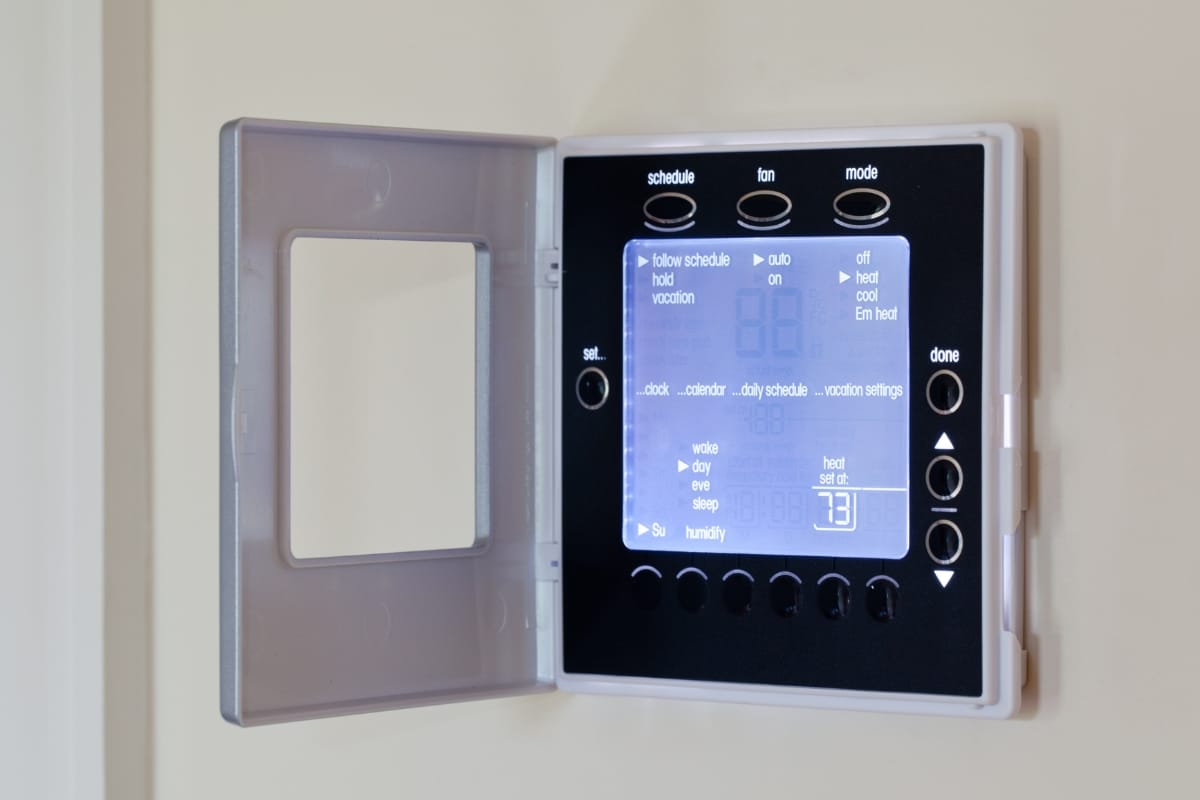
One of the most advanced features of smart HVAC systems is their ability to use real-time data from various sources to adjust their performance. By incorporating occupancy sensors and weather forecasts, these systems can adapt automatically to ensure both comfort and energy efficiency.
For instance, when a room is unoccupied, smart HVAC systems can reduce heating or cooling to conserve energy, only increasing it again when people return. Similarly, the system can adjust in response to external weather patterns.
On a hot summer day, it might start cooling a space earlier to maintain a pleasant temperature by the time employees arrive. Conversely, during cooler weather, it could delay heating to save energy while still keeping everyone comfortable.
This capability to react in real-time not only enhances comfort but also reduces unnecessary energy consumption, saving businesses money. The system continuously learns and adapts, ensuring that buildings are always operating at peak efficiency, with no need for manual adjustments. This results in a more eco-friendly and cost-effective approach to managing indoor environments.
Sustainability in Action: Reducing Environmental Footprints

As sustainability becomes a growing priority for businesses, smart HVAC systems are increasingly recognized for their role in minimizing environmental impact. These advanced systems go beyond basic heating and cooling functions, actively working to reduce energy waste and carbon emissions, which directly contributes to a greener future.
Traditional HVAC systems often follow fixed schedules, running even when spaces are unoccupied or not in need of smart HVAC control. This results in unnecessary energy consumption, which in turn increases greenhouse gas emissions.
Smart systems, however, are designed to operate more efficiently. By continuously analyzing real-time data, such as the number of occupants in a building and external weather conditions, they adjust heating and cooling dynamically, ensuring energy is used only when and where it’s needed.
These HVAC systems can integrate with broader building automation platforms to fine-tune energy usage across the entire facility. This not only reduces utility costs but also helps businesses significantly lower their carbon footprints, making sustainable operations a practical and attainable goal.
Remote Monitoring and Management: Streamlining HVAC Operations
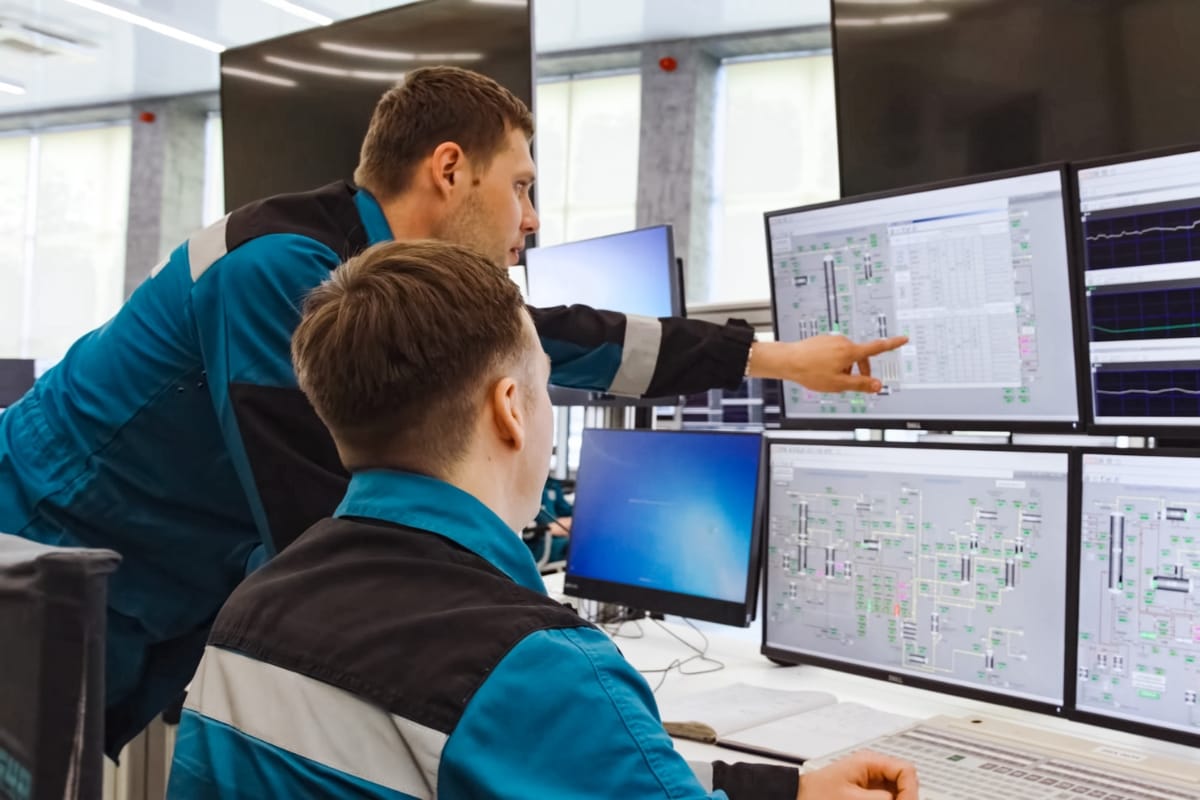
One of the key benefits of smart HVAC solutions is the ability to remotely monitor and manage HVAC systems through cloud-based platforms. These platforms provide real-time HVAC smart data on various performance metrics such as energy consumption, temperature fluctuations, and equipment status.
This level of accessibility gives businesses control over their HVAC operations from anywhere, ensuring that systems are always running optimally.
Remote monitoring allows for proactive identification of potential issues, such as system inefficiencies or maintenance needs, before they become critical.
For instance, if a component shows signs of wear or a unit is not functioning at full capacity, alerts can be sent directly to facilities managers, enabling them to schedule repairs or maintenance before a breakdown occurs. This approach reduces the risk of costly repairs or extended downtime that could disrupt business operations.
Not only that, but with access to data on energy usage patterns, businesses can make informed decisions about how to further optimize energy consumption, leading to substantial cost savings. By adjusting system settings in response to real-time data, HVAC systems can operate more efficiently, reducing unnecessary energy waste and contributing to a more sustainable operation overall.
Predictive Maintenance: Preventing Downtime with Data Insights
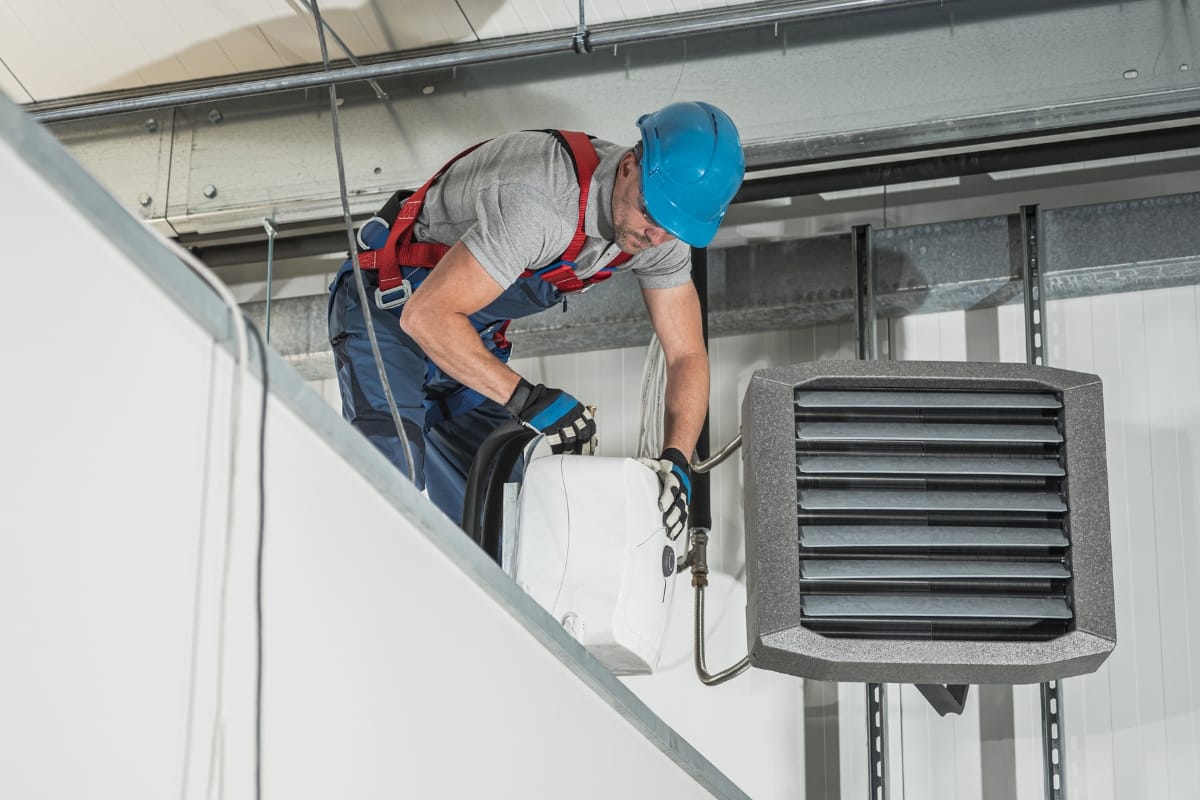
Predictive maintenance is a game-changer for HVAC management, as smart systems use real-time data and advanced analytics to foresee potential issues before they become major problems.
These systems continuously monitor the performance of HVAC equipment, tracking key indicators such as temperature variations, energy usage, and equipment wear. With this data, quality smart HVAC solutions can predict when a component is likely to fail or when routine maintenance is needed.
This proactive approach significantly reduces the likelihood of unexpected breakdowns, which can disrupt business operations and lead to costly emergency repairs. By scheduling maintenance when early warning signs appear—such as unusual vibrations or a slight drop in performance—businesses can avoid major malfunctions and the high costs associated with them.
Moreover, predictive maintenance helps extend the life of HVAC equipment. Addressing small issues early prevents further wear and tear on critical components, allowing systems to operate efficiently for longer periods.
This reduces replacement costs and contributes to sustainability efforts by minimizing waste, ultimately leading to greater long-term savings for businesses.
Integration with Building Automation Systems: Enhancing Overall Efficiency
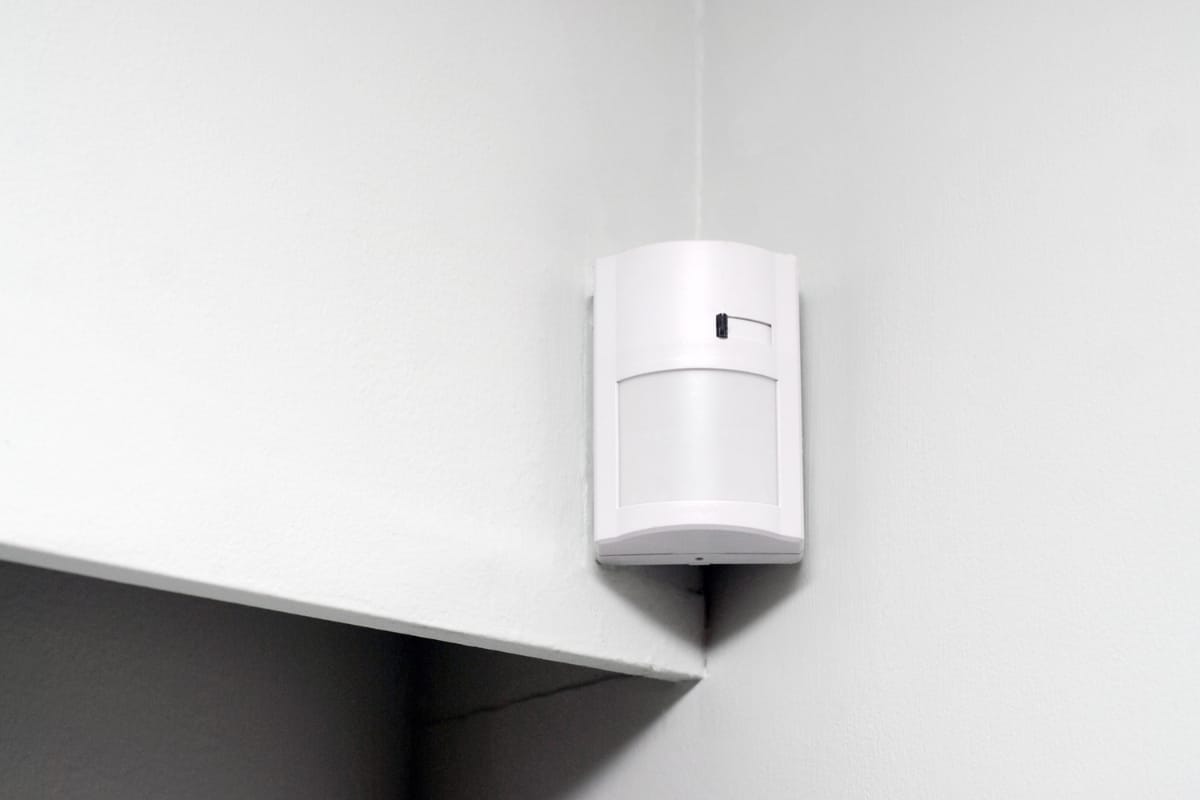
Integrating smart HVAC solutions with building automation systems (BAS) takes energy management and operational efficiency to a new level.
By linking HVAC controls with other building systems like lighting, security, and occupancy sensors, businesses can achieve a more streamlined and responsive environment. This interconnected approach ensures that resources are used wisely, reducing unnecessary energy consumption and making daily operations more efficient.
For example, when occupancy sensors detect that a space is empty, the HVAC system can automatically reduce heating or cooling in that area, while the lighting system dims or shuts off. This prevents energy waste in unoccupied rooms and ensures comfort is only provided where it’s needed.
Not only that, but by linking to the security system, the HVAC can switch to an energy-saving mode during off-hours, such as nights or weekends, further reducing energy costs without sacrificing security.
This integration not only boosts energy efficiency but also simplifies facility management by consolidating control of multiple systems into one platform.
Facility managers can remotely monitor and adjust all building operations from a single interface, making it easier to track performance, optimize usage, and detect any issues early. This holistic control system enhances both the sustainability and functionality of the building, supporting long-term operational goals.
Conclusion: The Future of Business Comfort and Efficiency with Smart HVAC Solutions
The future of business comfort and efficiency lies in the hands of smart HVAC solutions. Embracing these technologies not only elevates workplace experiences but also contributes to a more sustainable and efficient world.
If you’re looking to optimize your workspace with cutting-edge HVAC systems that improve performance and reduce costs, Galgon HVAC & Mechanical Service is here to help.
With expert guidance and tailored HVAC solutions, we can revolutionize your business environment. Contact us at (404) 352-1500 or get your project started with a service request or a project quote today!
